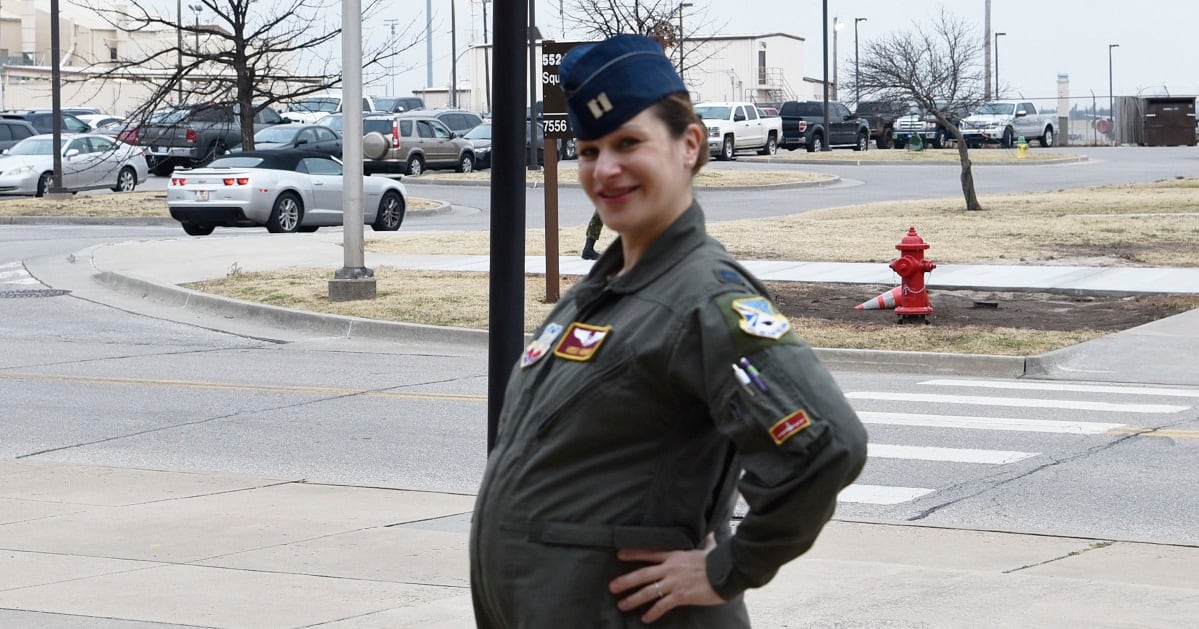All military parents would get 12 weeks of family leave to care for a new child and would see increased flexibility in how they use that time off under a new legislative proposal introduced on Tuesday.
The Servicemember Parental Leave Equity Act, backed by bipartisan group 31 House members, would cover both primary and secondary caregivers, significantly boosting the unpaid leave available to each under current military rules.
Supporters said the measure would bring military parental leave policies in line with other federal employees who saw their benefits boosted by Congress in recent years.
RELATED

“Parental leave for military servicemembers is absurdly out of touch and outdated when compared to federal benefits and options provided by many private, large employers,” Rep. Jackie Speier, D-Calif, chairwoman of the House Armed Services Committee’s personnel panel, said in a statement.
“New parents need time to bond with their children after birth, adoption, or foster placement. Servicemembers are no exception.”
Under current military rules, women giving birth are allowed up to six weeks of maternity convalescent leave, and a household’s primary caregiver can receive an additional six weeks of cleave.
Secondary caregivers in the Army and Air Force can take three weeks of uncharged parental leave, while Navy and Marine Corps members are eligible for only two weeks.
Under the new proposal, primary caregivers (which are designated by the family, not the service) would be granted 12 weeks of uncharged leave in addition to any available convalescent care to be used within a year of the child’s arrival.
Secondary caregivers would also get 12 weeks. Parents would be able to use the time off in multiple increments if they do not want to take all of the time at once.
Supporters said that provision would allow individuals on overseas deployments more flexibility in using their leave while minimizing disruption on their unit’s missions and responsibilities.
The parental leave is already authorized in cases of adoption, but the new legislation would also expand it to include long-term placement of a foster child. A service member would also be eligible for separate, uncharged leave in cases of miscarriage, stillbirth or infant death.
“It is long past time that our servicemembers have the parental leave they need to properly care for themselves, their children, and their partners,” said Rep. Carolyn Maloney, D-N.Y., in a statement. “Our military’s leave policy should be the best in the nation, not lagging far behind the private sector and federal government.”
RELATED

Outside advocates said they support the changes as an important step in helping military families adapt to the stresses of military life.
“Our military families sacrifice so much to keep us all safe, and they should not have to choose between their careers and experiencing the birth or adoption of a new child and that critical early bonding time,” said Tina Sherman, senior campaign director of MomsRising, a non-profit focused on family support issues.
No timeline has been set for when the measure may get consideration for passage. The 31 bill sponsors include members in both chambers, and the issue is likely one that will be considered as part of the annual defense authorization bill debate scheduled for this summer.
Leo covers Congress, Veterans Affairs and the White House for Military Times. He has covered Washington, D.C. since 2004, focusing on military personnel and veterans policies. His work has earned numerous honors, including a 2009 Polk award, a 2010 National Headliner Award, the IAVA Leadership in Journalism award and the VFW News Media award.









